Radical Landscapes: About the project
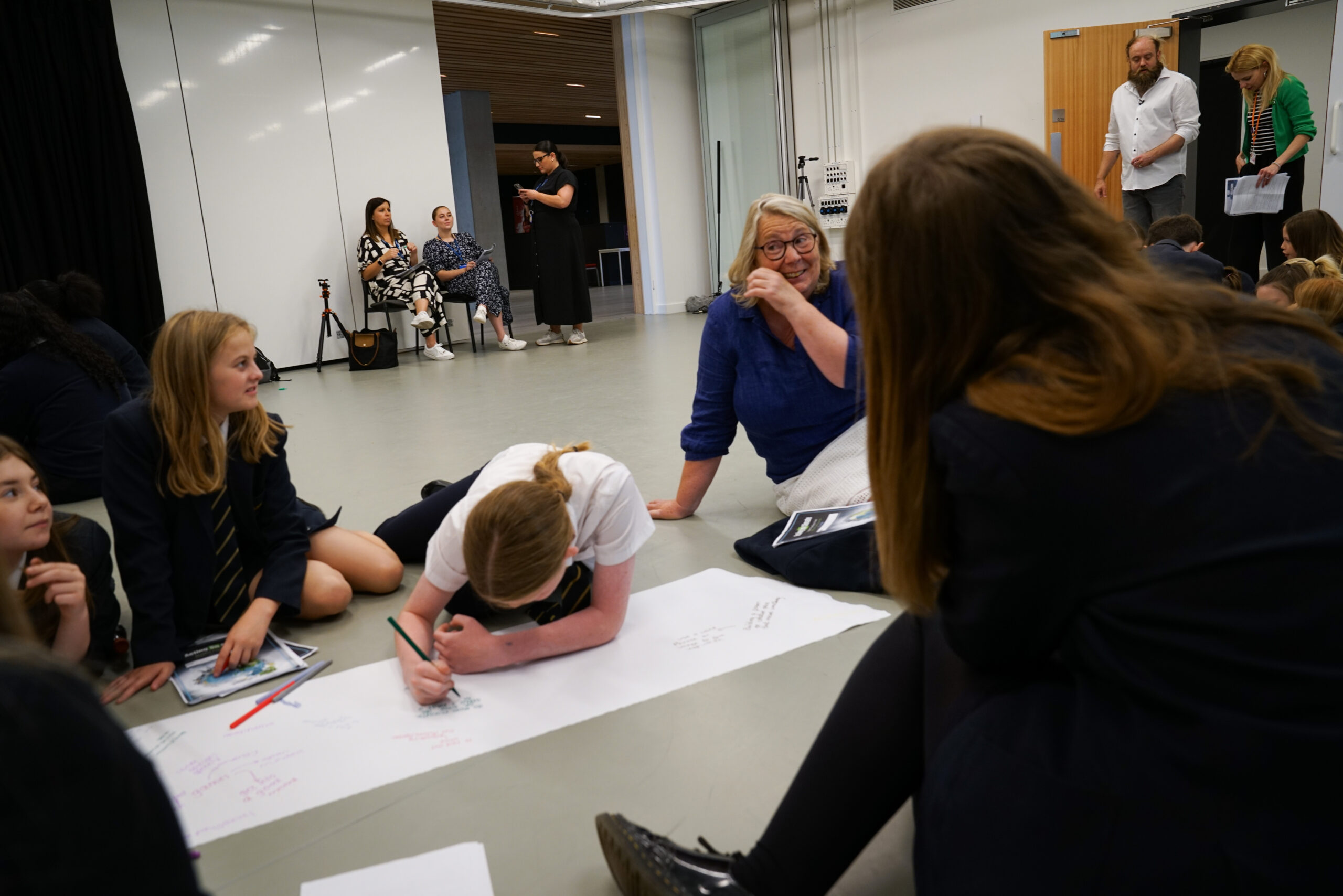
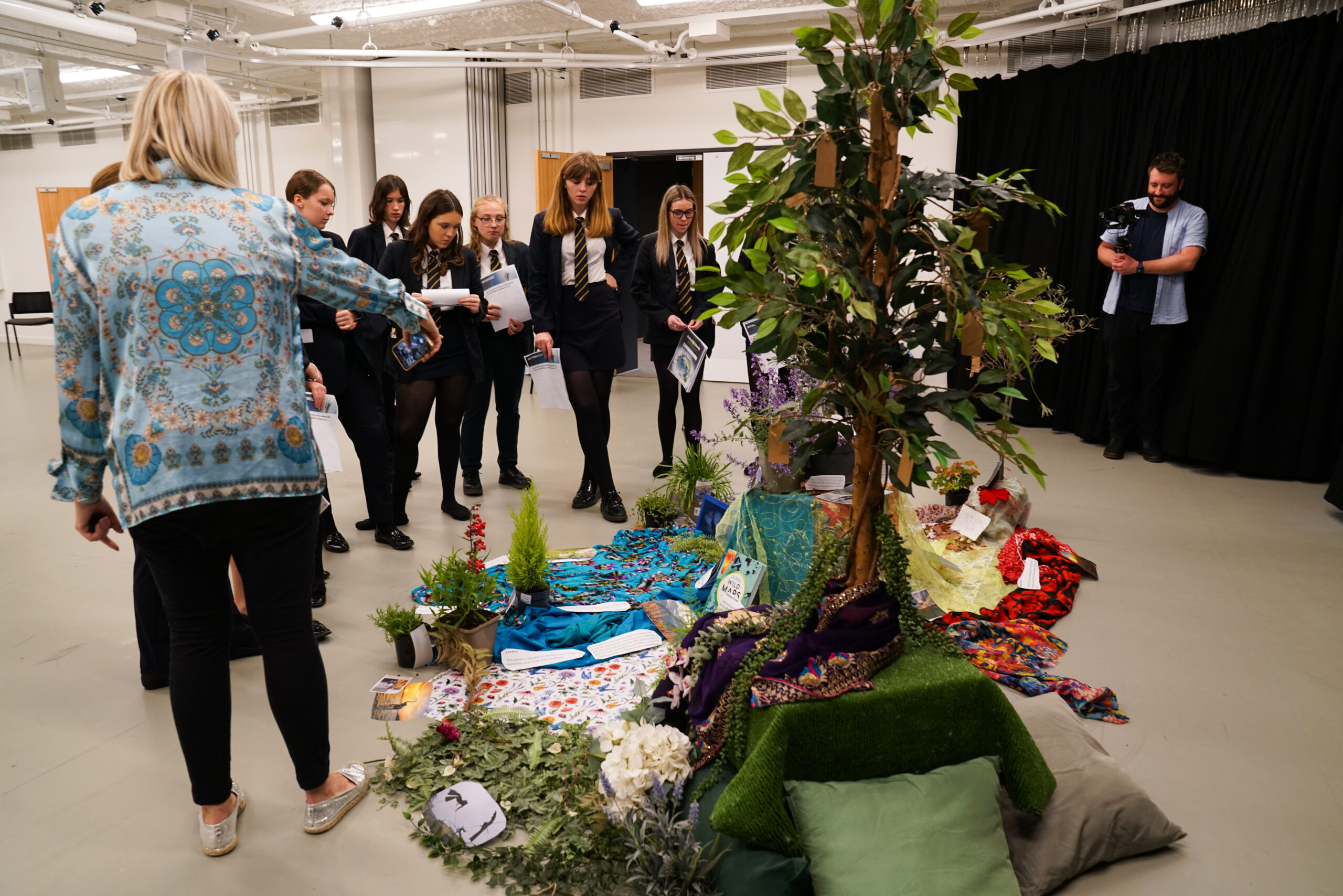
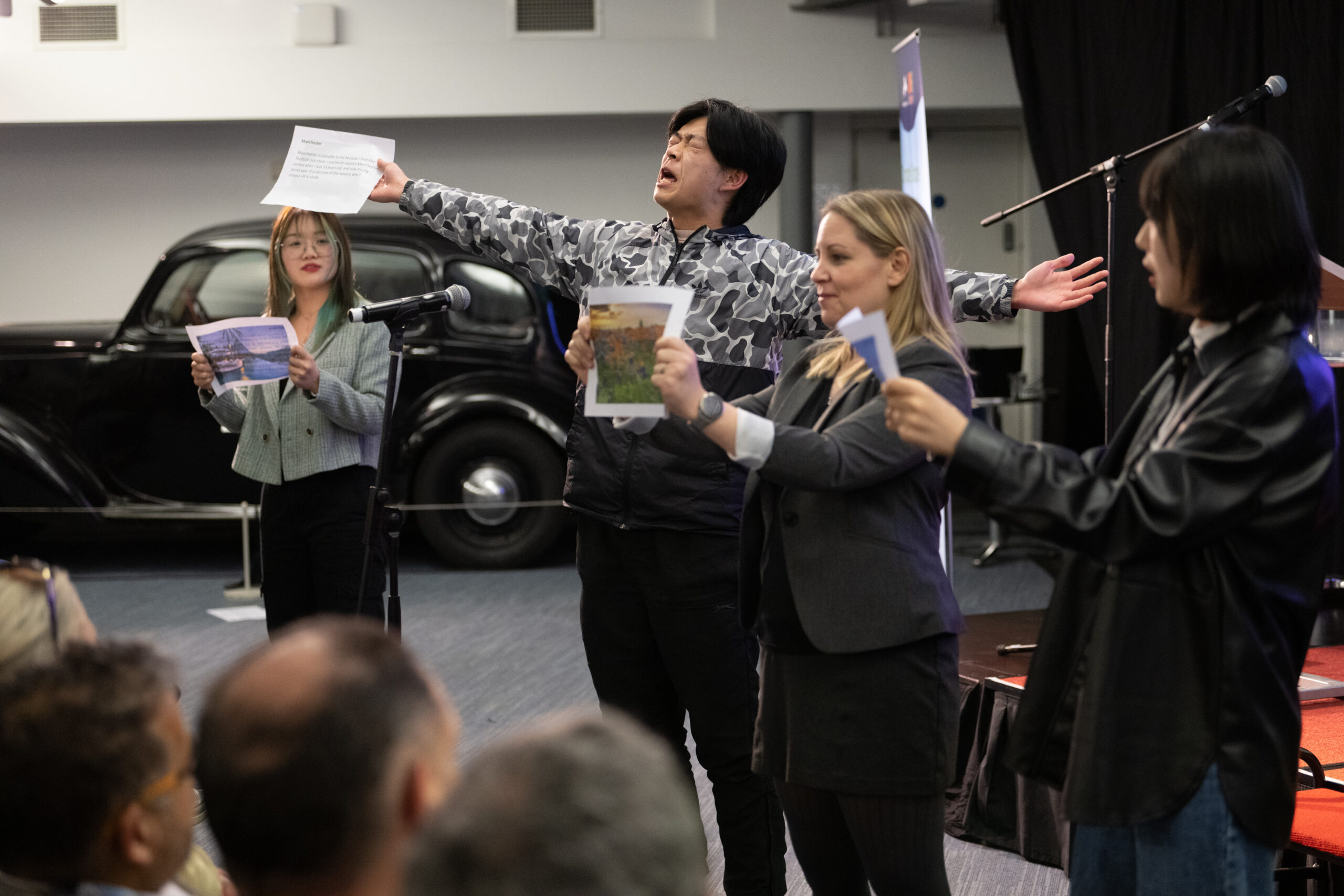
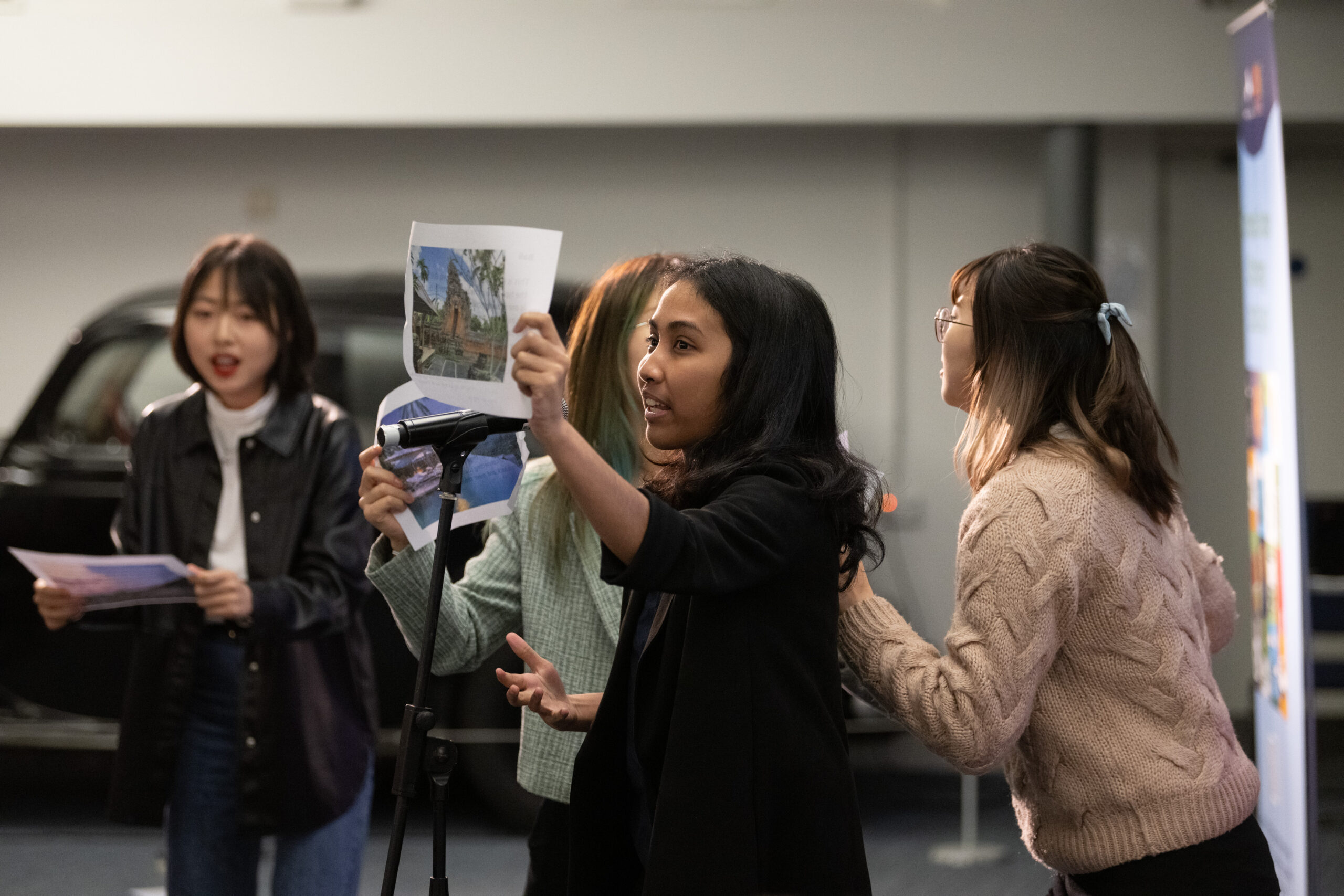
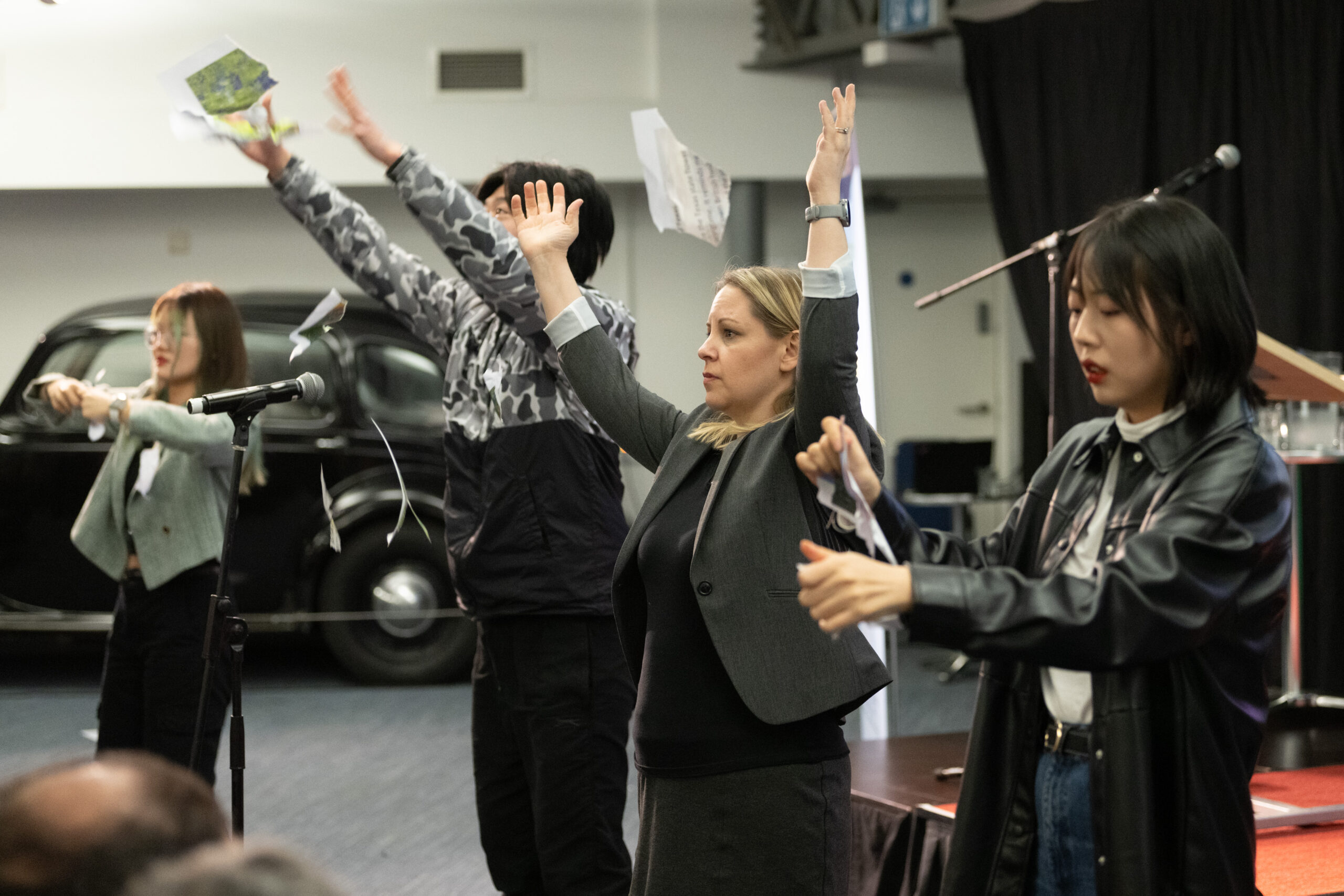
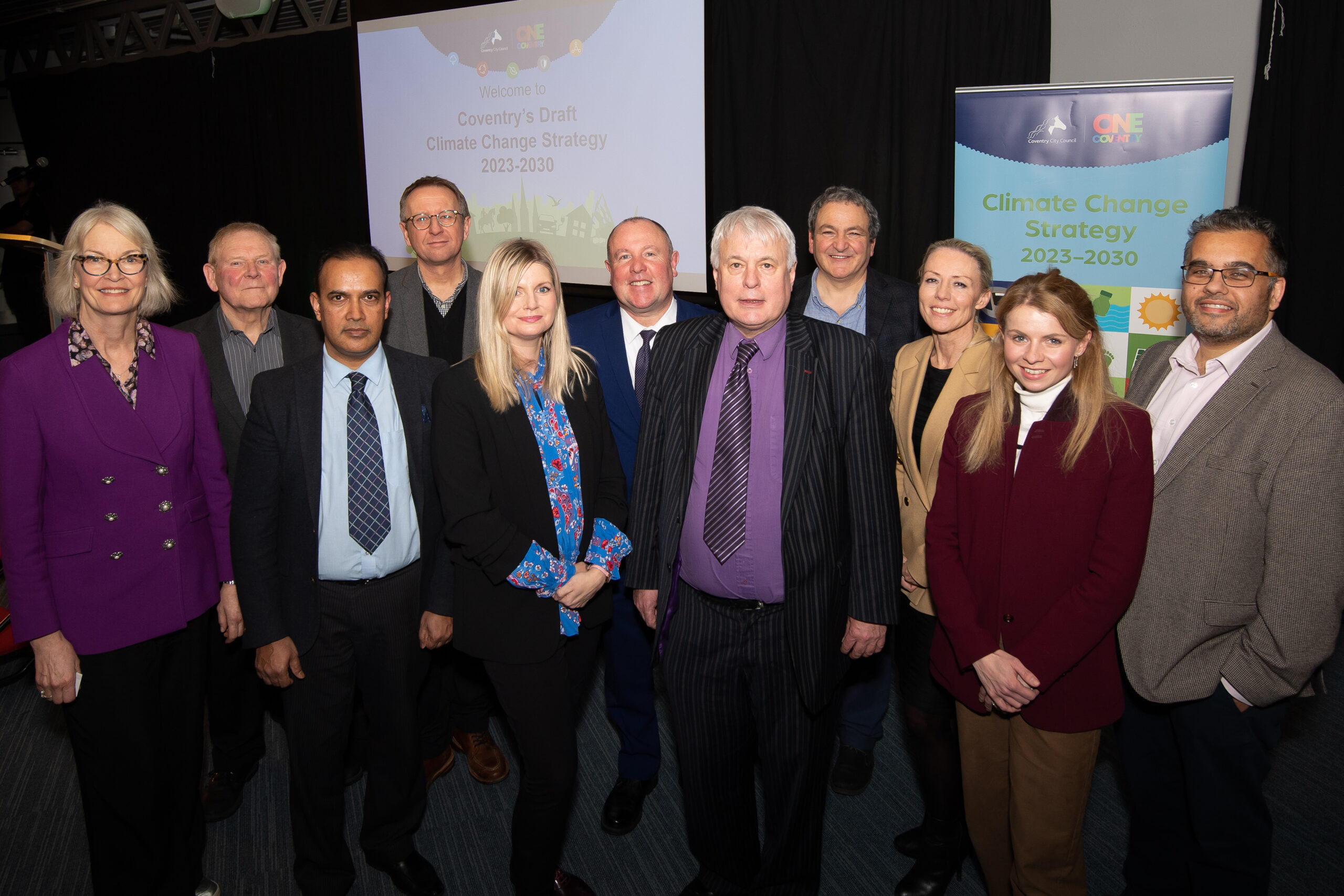
Throughout 2022, a dedicated team of Warwick researchers, external artists, and young individuals from a school in Coventry embarked on a project to address the global climate crisis and explore the UN’s Sustainable Development Goals (SDGs). Their collaborative efforts aimed to pioneer new approaches to community engagement and action, seeking to empower youth voice and agency and foster local initiatives for resilience and sustainability.
Innovative Approaches to Engagement:
At the heart of this initiative was the development of a Young People’s Assembly, a radical adaptation of conventional formats, infused with innovative forms of aesthetic activism and creativity.
Leveraging Leverhulme and ESRC IAA funded Impact research, the project drew upon the arts to empower young people and explore solutions to the climate emergency. By bridging research and community action, the Assembly served as a mechanism for debate, devising, and action planning, bolstering the the young peoples capacity to become creative change makers.
Multifaceted Support and Expertise:
Backed by in-house expertise and experience, the project seamlessly integrated with the University of Warwick’s sustainability strategies and embedded research impact. Notably, Naomi Waltham-Smith, Karen Simecek, Bobby Smith, Rachel Turner-King, and Jonathan Clarke contributed valuable insights into how listening and performance practices can catalyze agency and address the climate emergency.
Naomi Waltham-Smith’s research addresses how contemporary challenges to democracy are interpreted as a crisis of listening. She explores how attention to listening practices can charge deliberative, participatory processes including in social movements.
Karen Simecek’s research “Empowering Young Voices” explores listening and being heard. Her research examines how performance poetry enables and empowers marginalised young people to discover their voices in matters of social justice.
Bobby Smith and Rachel Turner-King research seeks to engage young people to become active researchers, using digital ethnography, verbatim theatre and site-responsive performance to investigate the complex interrelationships between their environment, their lives and the climate crisis.
Jonathan Clarke has undertaken research to explore how urban design and governance might enhance city resilience, based on an inductive approach of learning from practice.
Alongside the academic researchers, artist collaborators included Charlotte Hale-Smith (FLUX), an arts practitioner specialising in STEAM education, Ashley James Brown, a digital artist, Luke Newbold, a videographer and creative director of Lens Change Ltd and John Bernard, a spoken word artist, rapper, and youth mentor.
At the heart of this project was an emphasis on co-creation and collaboration and acknowledging the opportunities and challenges of complex cross-sector partnerships that aim to engage non-academic publics directly in research. Together, the collobarators questioned the exciting interdisciplinary and transdisciplinary implications involved in co-creating artistic outputs and producing research impact.
Achieving Objectives:
Throughout the project, key objectives were pursued with remarkable success:
– Over 25 young people from Coventry actively engaged in participatory democratic processes, gaining confidence and tools to articulate their ideas.
– Six Warwick PGT students honed their skills in community theatre making, managing democratic processes, empowering youth, and transferring knowledge from their studies.
– The young participants leveraged creative expression to engage audiences, presenting their artistic output at Warwick Arts Centre to an audience of community leaders, city councillors and other academic researchers from the University of Warwick.
– Alongside Rachel Turner-King and Charlotte Hale-Smith, young people and PGT students were invited to perform their artistic output and present key research findings to Coventry City Council at the launch of the city’s climate strategy in February 2022, influencing the city’s plans for sustainability and extending community knowledge of innovative approaches.
